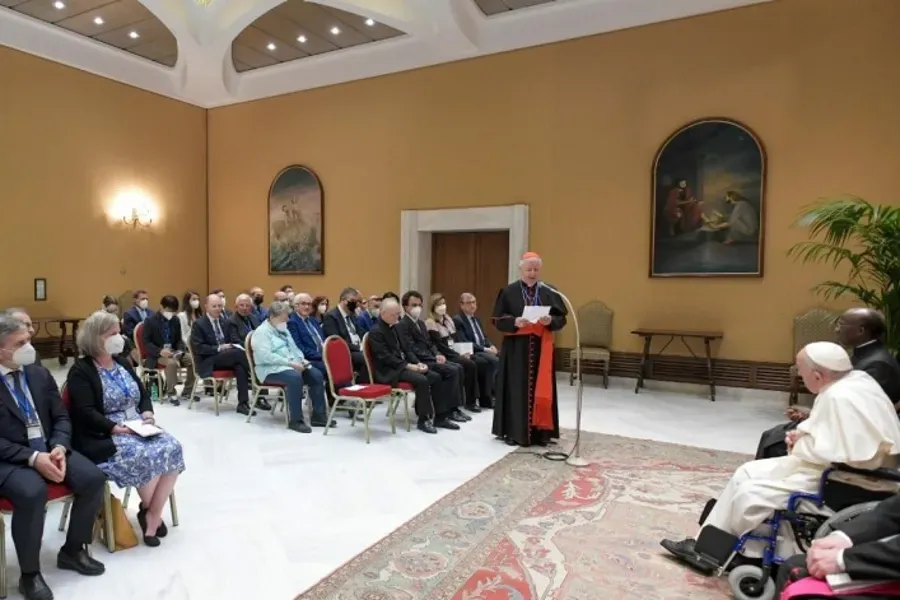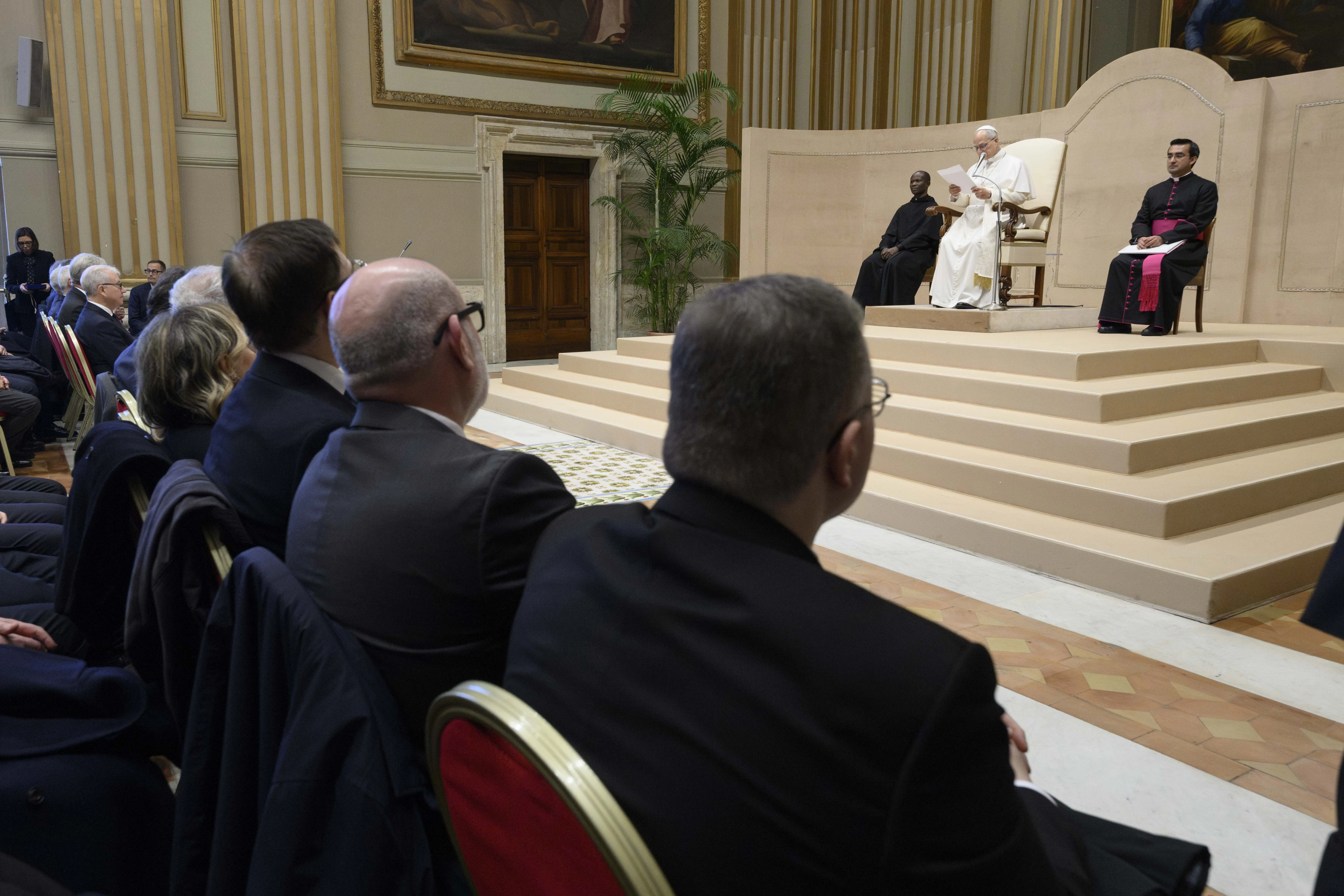“Education, for its part, is always rooted in the past, but it does not stop there: it is directed towards ‘forward-looking initiatives,’ where the old and the new converge to create a new humanism,” he said.
The pope underlined that true tradition is “what that fifth-century theologian described as a constant growth: throughout history, tradition grows, progresses: ut annis consolidetur, dilatetur tempore, sublimetur aetate.”
The pope was referring to St. Vincent of Lerins, who wrote about the development of Church teaching, saying that it “is solidified over the years, extended with time, and refined with age.”
Pope Francis has invoked this quotation numerous times since his election in 2013, including in a letter on Amoris laetitia in 2018.
The pope did not mention the liturgy or Catholic doctrine in his June 1 address, but focused his speech on education.
He said that Virgil’s Aeneid contains an image that “can serve to illustrate the mission of educators, who are called to preserve the past … and to guide the steps of the young towards the future.”
“An eloquent example of how to confront the crisis can be found in the epic figure of Aeneas, who amid the flames of his burning city, carries on his shoulders his elderly father Anchises and takes the young son Ascanius by the hand, leading them both to safety,” Francis said.
“Aeneas saves himself, but not by himself. He brings with him his father, who represents his past, and his son, who represents the future. And so he moves forward,” he added.
Pope Francis said that this representation of tradition being respected and preserved reminded him of “what Gustav Mahler said about tradition: ‘Tradition is the guarantee of the future,’ not a museum piece.”
The pope met at the Vatican with participants in a conference organized to evaluate the work accomplished so far by his Global Compact on Education and to plan for its development in the years to come.








